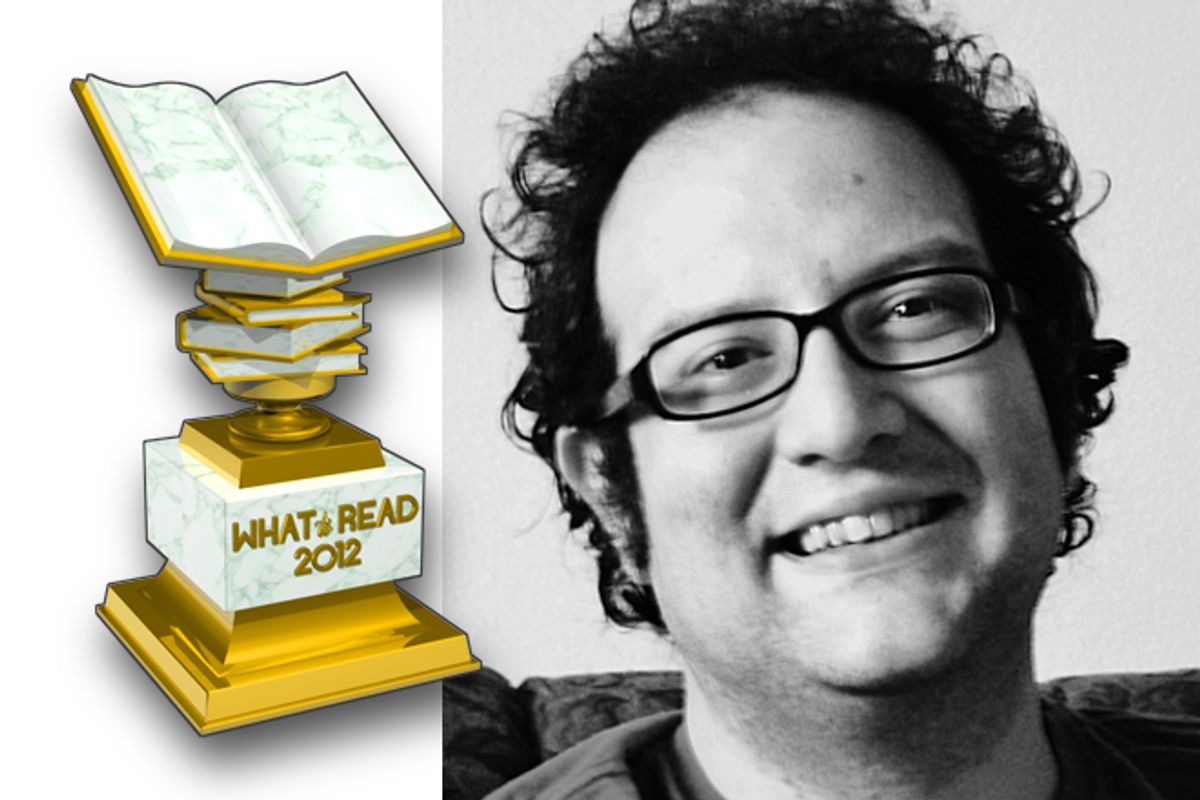Michael Schaub is a writer, book critic and regular contributor to NPR Books.
Michael's top 10:
1. “May We Be Forgiven” by A. M. Homes
2. “The Passage of Power: The Years of Lyndon Johnson” by Robert A. Caro
3. “Bring Up the Bodies” by Hilary Mantel
4. “The Last Holiday” by Gil Scott-Heron
5. “I’m Your Man: The Life of Leonard Cohen” by Sylvie Simmons
6. “Evel Knievel Days” by Pauls Toutonghi
7. “Looking for Transwonderland: Travels in Nigeria” by Noo Saro-Wiwa
8. “Wild: From Lost to Found on the Pacific Crest Trail” by Cheryl Strayed
9. “Confessions From a Dark Wood” by Eric Raymond
10. “Brain on Fire: My Month of Madness” by Susannah Cahalan
1. Explain why your No. 1 book was your favorite title of the year: “May We Be Forgiven” is a brilliant novel, and it combines tragedy and humor more skillfully than any book I’ve read in years. Everything about this novel is perfect.
2. What was the strongest debut book of 2012? “Confessions From a Dark Wood” by Eric Raymond. It’s an amazingly self-assured debut, and the funniest, weirdest book I read this year.
3. What book sits outside your list, but has either been overlooked or deserves more attention? “Norumbega Park” by Anthony Giardina. This novel of family, faith and devotion is an overlooked treasure by a wonderful, underrated author.
4. Was there one book, either on your list or off your list, fiction or nonfiction, that seems to best encapsulate America in 2012? “May We Be Forgiven” by A. M. Homes. Homes examines what makes contemporary America both beautiful and terrible, and proves she’s one of our country’s most intelligent, important cultural observers.
5. What was the single most memorable character from a 2012 book? Khosi Saqr in “Evel Knievel Days” by Pauls Toutonghi. The young Egyptian American protagonist of “Evel Knievel Days” is sweet, optimistic and curious, and Toutonghi renders the character with love, honesty and contagious enthusiasm.
6. What is the book from 2012, either from your list or not, fiction or nonfiction, that is most likely to join the canon, or still be discussed 20 years from now? “The Passage of Power: The Years of Lyndon Johnson” by Robert A. Caro. It’s not an exaggeration to say this might be the best presidential biography ever written. I have no doubt it will be discussed for decades, not just by students of literature, but of history, too.



Shares